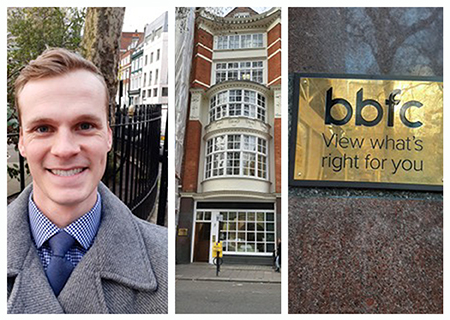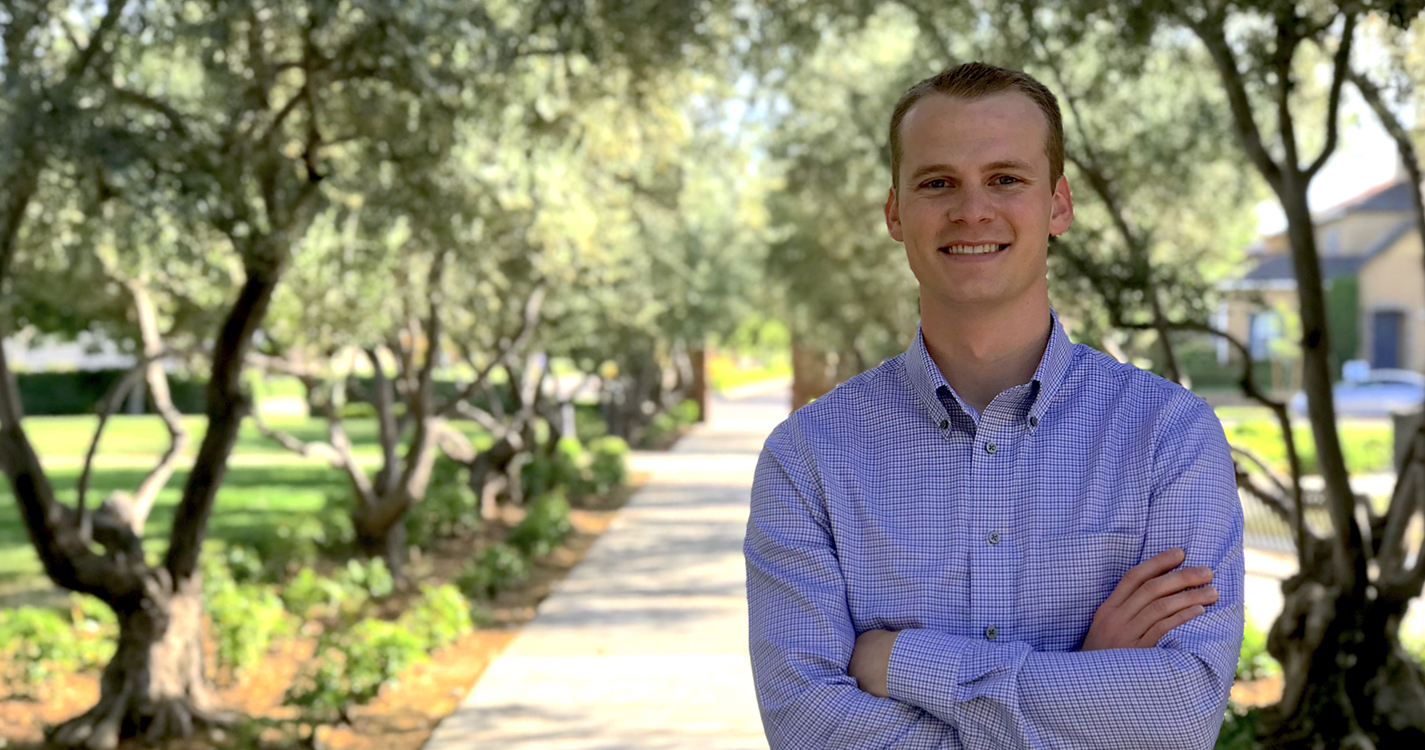Byrin Romney JD'20 first became interested in online child protection measures when he witnessed how pornography negatively affected not only his own life but that of his family and friends. “I have seen pornography addiction destroy individuals, marriages and families” said Romney.
“Many people become addicted at a young age because they do not have the resources to make wise decisions about pornography use or understand its consequences," said Romney. "Adolescents are more susceptible to being influenced by pornography because of the significant physical, emotional, cognitive, and sexual changes associated with adolescent development."
Through his research, Romney found strong correlations between pornography use and sexual aggression in boys and sexual victimization in girls. One 2019 study among 10th graders in the U.S., revealed that boys exposed to violent pornography were 2–3 times more likely to commit sexual violence against a dating partner.
Childhood exposure to pornography became more of a compelling issue for Romney after the birth of his daughter. “I know that at some point she will be exposed to pornographic material. My wife and I are now having conversations about how we prevent that and prepare her to make responsible choices with her media use.” said Romney.
“I think we need to educate our kids and help them understand what pornography is, how it can negatively impact their lives, and then provide them with adequate resources to deal with exposure. Child online protection measures are about protecting children so that they aren’t faced with this type of challenge at such an early age. The average age of first exposure to pornography is generally around eleven years old."
During his undergraduate studies at Brigham Young University, Romney attended a presentation by Fight the New Drug, a secular, non-legislative nonprofit organization dedicated to helping youth and young adults understand the harmful effects of pornography. Later as a law student at Willamette University College of Law, he felt like others could benefit from their program. His inquiry about raising funds to host Fight the New Drug led him to meet with Professor Warren Binford.
“Professor Binford was interested in helping and also made me aware of some new legislative developments in the United Kingdom requiring the use of age-verification technology to protect children from commercial pornography online.” The British Board of Film Classification (BBFC) was playing a major role in this new regulation. On his behalf, Professor Binford reached out to the BBFC, and they agreed to host him as an extern.
Romney now faced a difficult decision, as an externship in London would have a significant impact on his family.“After thoughtful prayer and consideration, my wife and I felt that this was an opportunity we shouldn't pass,” he said. “We decided that I would do the externship in London alone and that my wife and daughter would stay in the United States.”
To prepare for this opportunity, he spent the next semester in an independent study with Professor Binford and an Internet and Social Media Law class with Professor Andrew Gilden. He set his sights on writing a research paper that would satisfy the academic requirements for both classes and potentially be publishable.
“I sought to explore how the United States might implement similar age-verification protections for children online,” he said. Although the research took longer than he expected, he was able to extend the courses through the following semester, which coincided with his externship at the BBFC.
 At the BBFC, he studied a wide range of topics, including the age-verification legislation, audiovisual media regulations across Europe, and how different countries were protecting children online. “I really enjoyed learning about the innovative technologies that made age-verification anonymous, secure and functional,” he said.
At the BBFC, he studied a wide range of topics, including the age-verification legislation, audiovisual media regulations across Europe, and how different countries were protecting children online. “I really enjoyed learning about the innovative technologies that made age-verification anonymous, secure and functional,” he said.
Romney also had opportunities to converse with representatives of other countries that were looking into similar age-verification protections. Poland and Australia will likely implement age-verification protections for online pornography in the near future.
Although the BBFC’s role shifted when the U.K. opted for a more comprehensive approach to online harms, Romney hopes his research will influence U.S. policy. Some U.S. Senators have expressed interest in the development of additional online child protection measures, and they may draw from his research in crafting future legislation.
Murray Perkins, Policy Director for the BBFC said he enjoyed having Romney on the team.
“He contributed a great deal in a short space of time, and I hope also gained a lot from the many conversations we had around age-verification in addition to other aspects of the BBFC’s work,” Perkins said. “Byrin is also very keen to see age-verification introduced in the U.S., and he’s already given a lot of thought to this — including some terrific academic research. I believe he has a great deal to offer to all of us working to better protect children online."
Recently, Romney's research, "Screens, Teens, and Porn Scenes: Legislative approaches to protecting youth from exposure to pornography," was accepted for publication with the Vermont Law Review this winter, and an executive summary of his article has been posted in the online blog of the Vanderbilt Journal of Entertainment and Technology Law.
In addition, child online protection advocates from New Zealand reviewed Romney’s research and shared it with the New Zealand Department of Internal Affairs as they explore child online protection measures.
Romney has accepted a position in civil litigation at Dowling Aaron Inc., a law firm in Fresno, California where he completed both an internship and externship. “I look forward to gaining more experience with the firm's intellectual property and internet and e-commerce practice groups,” he said.
About the Willamette University College of Law
The College of Law is a private law school located in Salem, Oregon at Willamette University, the oldest university in the western United States. Willamette Law boasts an innovative program designed to prepare leaders in government, private practice, and business with the lawyering skills needed in the 21st Century. In recent years, outside industry watchers such as Moody’s and The National Jurist Magazine have recognized Willamette Law for its positive job placement results. Willamette lawyers are the best dealmakers, problem solvers, community leaders, and change-makers in the most innovative and exciting region in the country. Our location — nestled in the heart of the Willamette Valley and across the street from the Oregon State Capitol, Supreme Court and many state agencies — is an advantage that cannot be matched anywhere in the region.


